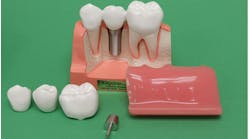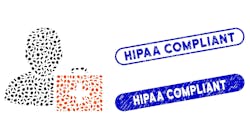The dental assistant asked the hygienist, “Are those your instruments in the lab?” And that’s how the fight started.
It's easy for ordinary conversations, questions, and comments to morph into difficult conversations wrought with drama, hurt feelings, and charged words. Here's a look at why patients and team members can overreact to seemingly innocent interaction, and tools to transform fights into courageous conversations.
Why conversations go south
A problem starts with the fact that every message has at least two components: what we literally say (the content), and the feelings and intentions behind the content. When we hear a message, we interpret the content, as well as the intentions and feelings against our own biases and expectations. This may or may not align with what the person who is speaking intended.
For example, interpret this patient question, “How long is this going to take?” Is the patient asking for a time frame because she has to pick up her kids from soccer, or is she expressing her anxiety? If it’s the latter, responding only to the content of the question won’t answer her real concern. But what if this patient is chronically late to her appointments, which causes office backups? How would this context affect your interpretation of her motives and your response?
More by Sharyn Weiss:
3 steps to mediate a team conflict
Talking fees with your dental patients: Why it's your job (or should be)
The problem with intentions
My favorite quote is, “We judge ourselves by our intentions; we judge others by their actions.” We believe we act from good intentions. In fact, we justify much of our own behavior by declaring we meant well, even if the results weren’t good. On the other hand, we aren’t as charitable with others; when we get hurt, we assume the other person had cruel intentions. An apology (“I didn’t mean to hurt you”) is usually not satisfying.
During difficult conversations, we spend considerable time parsing intentions, but it’s really beside the point. Intentions aren’t as important as interpretations. Let’s examine how this plays out with the question, “Are those your instruments in the lab?” Why would that innocuous question lead to a huge fight?
The hygienist doesn’t interpret this as a genuine question, but as a judgment. She thinks she’s hearing, “You’re an overpaid diva and I’m not going to sterilize your instruments again!” The hygienist responds defensively based on this assumption. The war of words is on.
Fuel in the fire
The chief reason regular conversations go nuclear is because we think our identify is at stake. We interpret the other person’s communication as an indictment about our worth, competence, and likeability.
This dental assistant construes the dirty instruments as symbolic of how little the other staff regard her. She fears she’s seen as the practice’s undervalued maid. The hygienist is frustrated because she sees herself as being unsupported when she’s doing an essential job that brings in production. They’re both angry not because they’re talking about dirty instruments, but because they believe their value is being questioned.
Two essential questions
The first step out of this situation is to engage in honest self-questioning.
- First, ask yourself if this is a fight about an objective issue or about your identity. Is your entire worth and self-esteem really at stake here? Is it possible that your ego is inflaming this situation?
- Next, identify your contribution to the situation. What did you do or say, even inadvertently, that led to this difficult encounter? Since it’s rare that someone is a completely innocent victim of an evil colleague, take an honest self-accounting about how your actions, attitudes, and communication may have been interpreted. This is not a Judge Judy show; there’s no benefit in declaring that you’re only 30% accountable because the other person is 70% accountable. The truth is you’re 100% accountable for your own actions and you need to fully acknowledge your contribution.
How to have a courageous conversation
There has never been a great dialogue that begins with, “I’m completely innocent but you totally screwed up.” The key ingredient in a courageous conversation is acknowledging your contribution; that’s why it’s called a courageous conversation.
The courageous conversation formula:
- Describe your contribution: the assumptions, misguided intentions, and interpretations that led to this conflict. “When I saw the instruments piled in the lab, I assumed you expected me to do them for you. I felt frustrated and disrespected because I don’t want to be taken for granted. I know I took that out on you.”
- Describe your hopes for the relationship: how you would like to work with the person in the future. “I would like to have a working relationship where we respect each other and communicate easily.”
- Describe your commitments: what you will do so this situation doesn’t reoccur. “From now on, I will ask if you need me to do your instruments and if I can, I will.”
- What you want from the other person while being open to negotiation. “I would like you to ask for my help before 2 p.m. and to thank me when I’m able to assist. How would that work for you?”
Courageous conversations are successful when both parties are able to let go of their ego needs to be right about the past and to focus instead on what they need to do differently in the future. When this happens, the relationship deepens and matures.
Sharyn Weiss, MA, is the CEO at Weiss Practice Enhancement, a Bay Area practice management firm serving dentists nationwide. She has worked with hundreds of dentists during the last 20 years with a focus on patient and team motivation. Her mission is to help dentists become confident leaders of a profitable practice. If that’s your goal too, contact Sharyn at [email protected] or weisspractice.com.
Editor's note: This article appeared in the November 2023 print edition of Dental Economics magazine. Dentists in North America are eligible for a complimentary print subscription. Sign up here.






